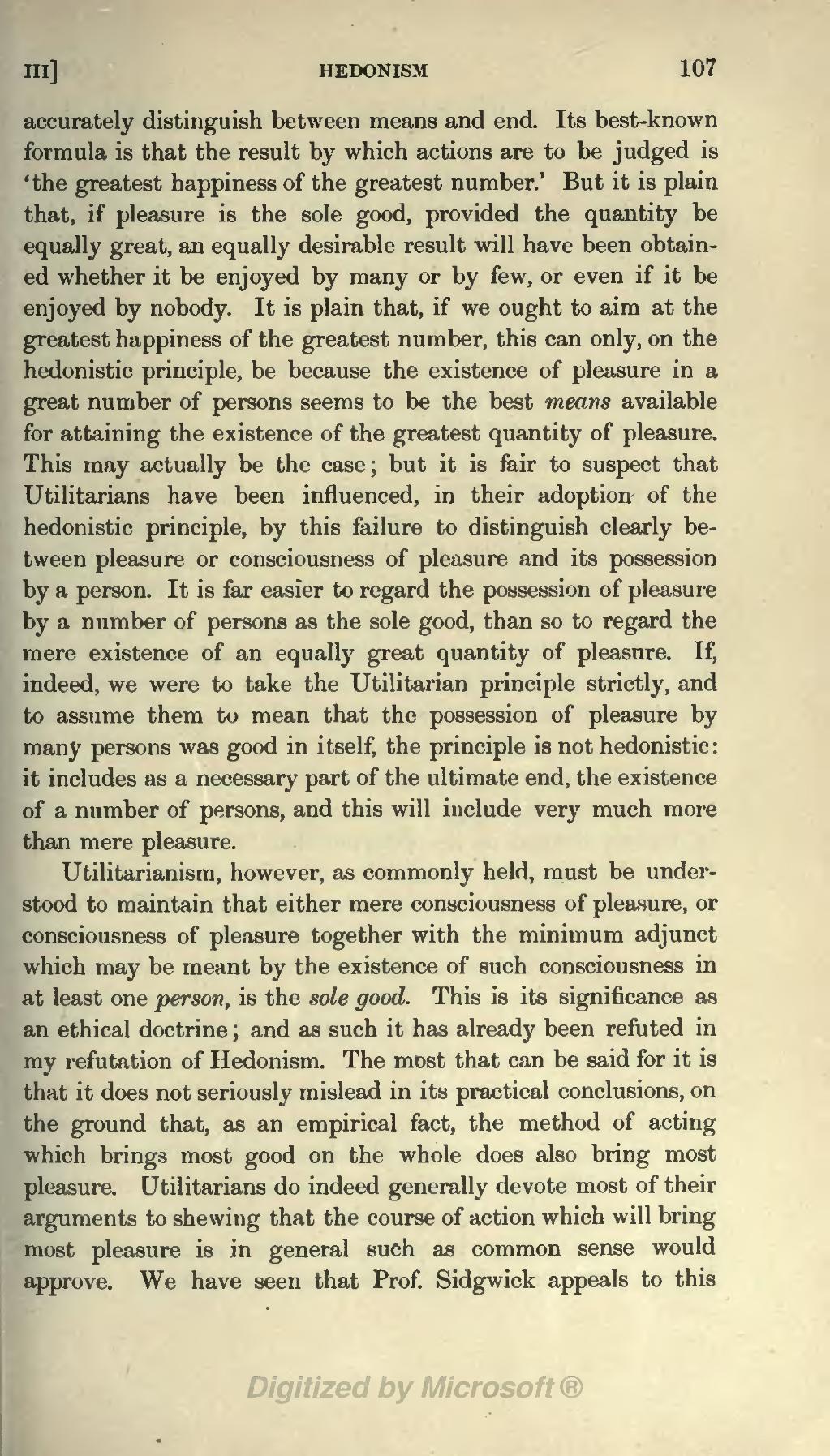accurately distinguish between means and end. Its best-known formula is that the result by which actions are to be judged is ‘the greatest happiness for the greatest number.’ But it is plain that, if pleasure is the sole good, provided the quantity be equally great, an equally desirable result will have been obtained whether it be enjoyed by many or by few, or even if it be enjoyed by nobody. It is plain that, if we ought to aim at the greatest happiness of the greatest number, this can only, on the hedonistic principle, be because the existence of pleasure in a great number of persons seems to be the best means available for attaining the existence of the greatest quantity of pleasure. This may actually be the case; but it is fair to suspect that Utilitarians have been influenced, in their adoption of the hedonistic principle, by this failure to distinguish clearly between pleasure or consciousness of pleasure and its possession by a person. It is far easier to regard the possession of pleasure by a number of persons as the sole good, than so to regard the mere existence of an equally great quantity of pleasure. If, indeed, we were to take the Utilitarian principle strictly, and to assume them to mean that the possession of pleasure by many persons was good in itself, the principle is not hedonistic: it includes as a necessary part of the ultimate end, the existence of a number of persons, and this will include very much more than mere pleasure.
Utilitarianism, however, as commonly held, must be understood to maintain that either mere consciousness of pleasure, or consciousness of pleasure together with the minimum adjunct which may be meant by the existence of such consciousness in at least one person, is the sole good. This is its significance as an ethical doctrine; and as such it has already been refuted in my refutation of Hedonism. The most that can be said for it is that it does not seriously mislead in its practical conclusions, on the ground that, as an empirical fact, the method of acting which brings most good on the whole does also bring most pleasure. Utilitarians do indeed generally devote most of their arguments to shewing that the course of action which will bring most pleasure is in general such as common sense would approve. We have seen that Prof. Sidgwick appeals to this
